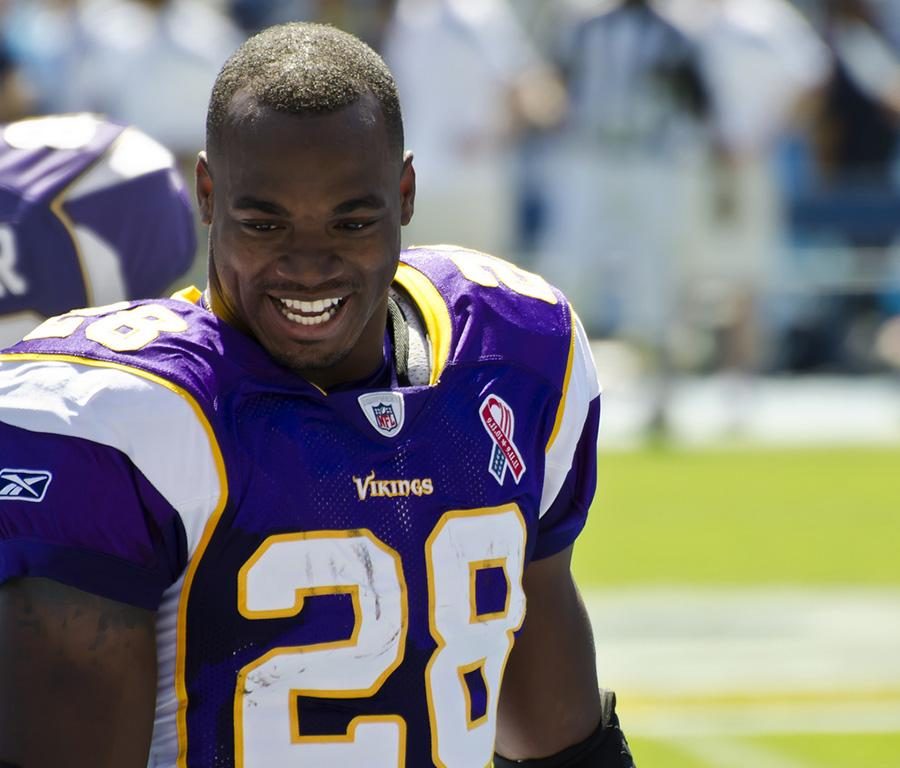NFL in no rush to resinstate Adrian Peterson
November 11, 2014
This week, news emerged that the NFL Players Association would petition the NFL to reinstate Minnesota Vikings running back Adrian Peterson after he plead guilty to a misdemeanor assault charge. Peterson was arrested on Sept. 13 and was charged with child abuse after disciplining his son with a switch, causing welts and severe bruising. At the time of the incident, Peterson was placed on the commissioner’s exempt list with the stipulation that he be removed from the list following the conclusion of his legal case. With Peterson’s case resolved, the NFLPA will likely file a grievance with the league if Peterson is not quickly reinstated.
Despite the NFLPA’s overtures, the NFL will likely be in no rush to make a decision on Peterson’s fate, especially after the league’s botched handling of assault charges surrounding former Baltimore Ravens running back Ray Rice. Rice, who was charged with assault after he was videotaped beating his then-fiancée unconscious in an elevator in February, was only given a two-game suspension by the NFL, which prompted public outcry. To make matters worse, reports emerged that the NFL was urged by the Ravens to be lenient with Rice, and after news broke that the league had access to extended footage of the incident, the NFL was forced to suspend Rice indefinitely amid calls for Commissioner Roger Goodell’s resignation.
CAS junior Austin Coury drew comparisons between Peterson’s and Rice’s cases.
“The Adrian Peterson situation is a little bit murkier than that of Ray Rice,” Coury said. “A good percentage of Americans believe in some form of corporal punishment, and it’s not clear if what Adrian Peterson did was overboard or not.”
Corporal punishment of this nature occurs more frequently than one may think. According to a 2007 study of adolescents by the University of Virginia, 51 percent of them responded that they had been hit by their mother with a belt.
In addition to differences between Rice’s and Peterson’s circumstances, the NFL will likely have to tread carefully with respect to the legal process. Much has been made of the fact that the NFL commissioner has assumed a quasi-judicial position, with nearly unilateral power to levy fines and penalties on players, irrespective of outside legal proceedings. With long-simmering controversy over Goodell’s tenure as commissioner intensifying in recent months, this could be an opportunity for the NFL to signal to fans and media alike that it will allow the legal system to have the final say on its players without exerting its own influence.
The dilemma the NFL now faces is the public perception that it cares about profit over principle. The league was rightly criticized for its handling of a spate of domestic abuse cases in recent months. Despite the conclusion of Peterson’s legal situation, the NFL could still prevent his immediate reinstatement on the grounds of the league’s personal conduct policy. The league will likely face pressure from the public to not make similar mistakes in its disciplinary procedures. Immediately reinstating Peterson without further punishment may make the NFL appear soft on abuse in the eyes of many, only further damaging its already tarnished image. The NFL will now be left to juggle the demands of due process and public relations.
A version of this article appeared in the Tuesday, Nov. 11 print edition. Email Charles Surette at [email protected].
























































































































































